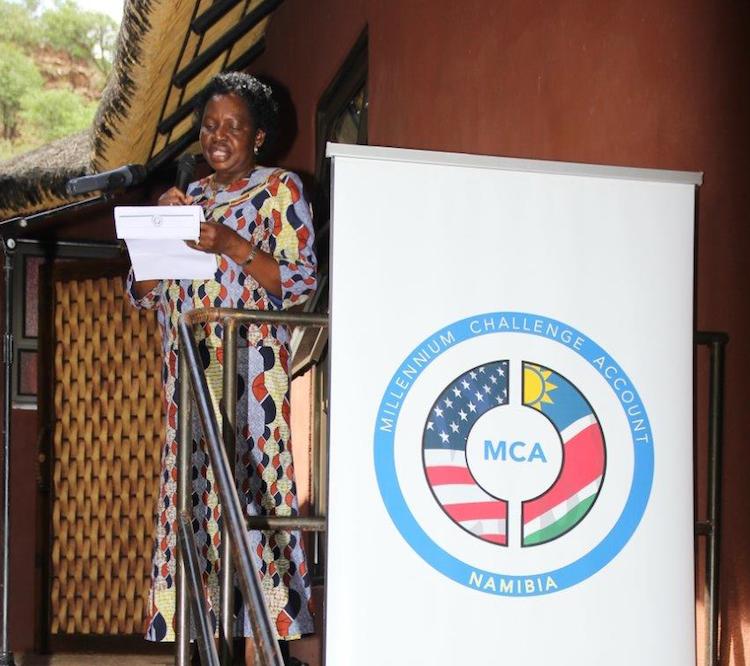
A processing facility for indigenous natural products and a visitors' centre were opened at Opuwo in the Kunene region of Namibia recently as part of the Millennium Challenge Account-Namibia (MCA-Namibia) project, to which NRI provides technical support. It is the first facility of this nature in Namibia.
The factory is an oil distillation facility that will make beauty product ingredients from a range of perfumed plants used traditionally by the local Himba people, including, myrrh, locally called "Omumbiri". Its construction was made possible through a grant of more than N$727,000 (£40,900) from the MCA-N's Conservancy Development Support Grant Fund, and it is hoped the facility will become a new source of novel Namibian essential oils for the world's fragrance industry. At the same time, the factory aims to add value by working with local Namibian cosmetic companies to sell products that use the oils at the adjoining 'visitor experience' centre.
Speaking at the opening event, MCA-Namibia Chief Executive Officer Penny Akwenye said that the facilities are a testament to the economic potential of the Kunene Region in the sector of indigenous natural products.
Working with local harvesting groups of the Himba people of northwest Namibia, the MCA-Namibia project, which began in 2010, promotes the sustainable wild harvesting of plant products. These products are then linked to high value local and international markets, while encouraging communities to manage their open access resources, thus ensuring future income.
The processing facility is locally owned by the Kunene Conservancy Indigenous Natural Product (KCINP) Trust. It is a mix of agriculture as well as tourism, with the combined aim of reducing poverty in the area through economic growth.
The visitors' centre will become an 'event' for the high-end tourists who can afford to come to this isolated part of the world. It includes a short video presentation explaining the sustainable harvesting process, a tour of the factory and a chance to buy incense, oils, soaps and cosmetics directly from the producers. This is already proving a 'hit' with local tour guides wanting more things for their clients to see during their visit to the Region.
As well as the conservancies of KCINP, who will benefit directly through the proceeds, 400 women harvesters and their families will benefit through the sale of their collected raw material and four new full time jobs have been created.
The factory and visitors' centre will promote four exciting new fragrance oils from indigenous Namibian plant species, including an extract from Mopane seed, an oil from the Sarcocaulon species and two oils from different members of the Commiphora family from which traditional myrrh comes. Professor Ben Bennett, NRI's Project Director, says, "it will take time for international markets to accept these new fragrance oils and use them in products, so we have built the visitors' centre as a way of driving revenue to the business while these new international markets are being developed." Ben hopes that this model of sustainable wild harvesting and multiple business models can be used for the development of other valuable but vulnerable plant species in Namibia and elsewhere in Africa.

